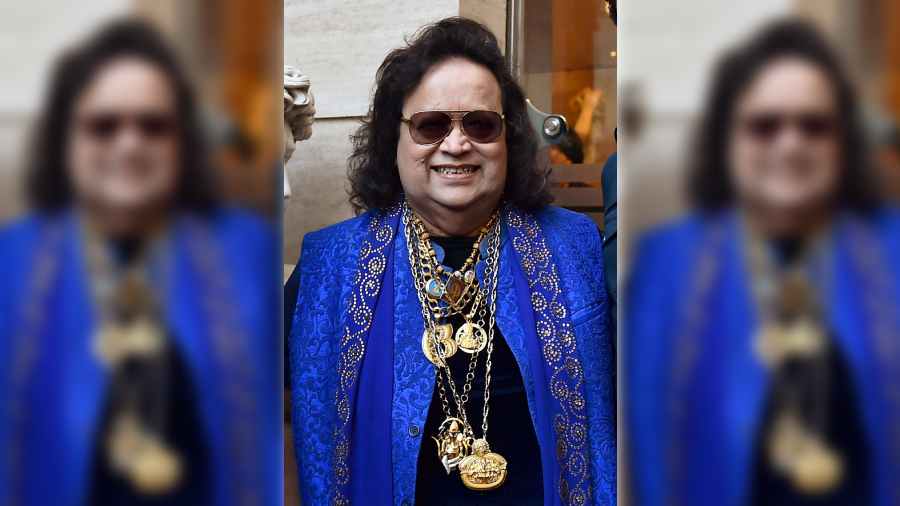It was the very amiable and approachable Panchamda (R.D. Burman) who brought a new sound to Hindi film music, creating a repertoire that went from pure melody like Raina beeti jaye (Amar Prem) to foot-tappers like Mehbooba Mehbooba (Sholay).
Bappida was younger, came in later, but between the two musical wizards of Bengali origin, with notable inputs from Anu Malik too, they gave the second half of the 20th century its finest range of Indian compositions that used instruments and beats from all over the world.
All of them came with musical genes, with one stark difference in their personal lives. Panchamda, with one divorce behind him and no progeny to take his legacy forward, had a troubled marriage with Asha Bhonsle. Anu has a lovely family with wife Anju and two daughters. He gets occasionally sullied with #MeToo charges.
Bappi Lahiri scored high and clean as a family man who revelled in sharing the limelight with his wife and kids. I still remember a young Chitrani, sister of singer Chandrani Mukherjee, and how she became a Lahiri. Knowing Bappida meant knowing his family. He, Chitrani, daughter Rema and son Bappa were like four happy footballs in different sizes. Other than his music, nothing gave him more pleasure than introducing his children’s talents to visitors.
I’ve never seen Bappida in a bad mood or unwilling to meet at any time. It was open door at his Juhu bungalow as birthdays, pujas and weddings were celebrated with the media in full attendance, the happy foursome always together.
He took compliments and cracks in his stride. You could ask him anything. He’d answer, his fingers eternally snapping to a tune and breaking into a song mid-reply. Immensely proud of the sounds of music he created and titles like Disco King that he rightly earned, Bappida would laugh off Raaj Kumar’s jibe, “Arre jaani, mangalsutra kahan hai?” and chuckle at jokes like the income tax people couldn’t find anything in his house because it was all on his person. There was banter about his accent too as his line “Hear my daughter’s gaun” became popular for sounding like a Hindi abuse starting with “g”.
Jokes die, as they should. But apart from his treasure chest of music, what will endure is his Chalte chalte, which became a noun for a chartbuster that lives forever even when the film was a dismal failure.
Confident of his Elvis-inspired fondness for jewellery, he turned “Bejewelled Bappida” into his signature style and stepped out laden with gold, several chins and folds on the neck, his smile in place. Goodbye, Bappida. It was a pleasure knowing you.
Juhu was also the venue where Raveena Tandon grew up in her father’s bungalow, Tandon House. And that’s where one went to bid farewell to the unfailingly warm Ravi Tandon, the maker of diverse films like Anhonee (1973), Khel Khel Mein (1975) and Khuddar (1982).
Always welcome at his shootings, one evening he was uncomfortable because Sanjeev Kumar, who had called me for an interview, wouldn’t entertain me and there was palpable tension in the air. When I barged into his makeup room and demanded to know why he was behaving so uncharacteristically, Sanjeev Kumar looked up and said in his forthright manner, “Because you wrote that I proposed to Sulakshana Pandit.” It was a story that Sulakshana had personally given me. When he heard that, Sanjeev swiftly softened and muttered, “Then I can’t blame you for writing it.” We went on to have a long and uninhibited chat.
When Raveena grew up and learnt driving, he insisted she should learn to change a tyre too and be truly independent.
At Tandon House, it was Raveena, always the organiser, who was looking after the arrangements for her father’s last rites. It was he who had turned her into the woman she now is. Farewell, Mr Tandon. I wish I’d kept in touch with you during your last few years.
Bharathi S. Pradhan is a senior journalist and author











